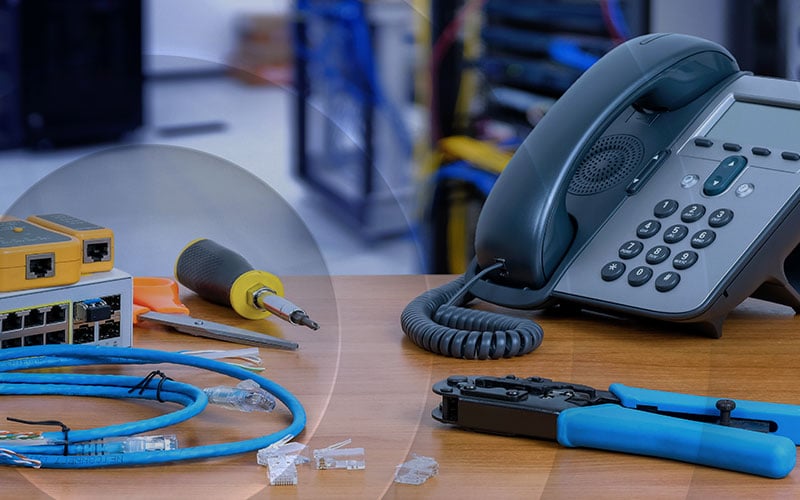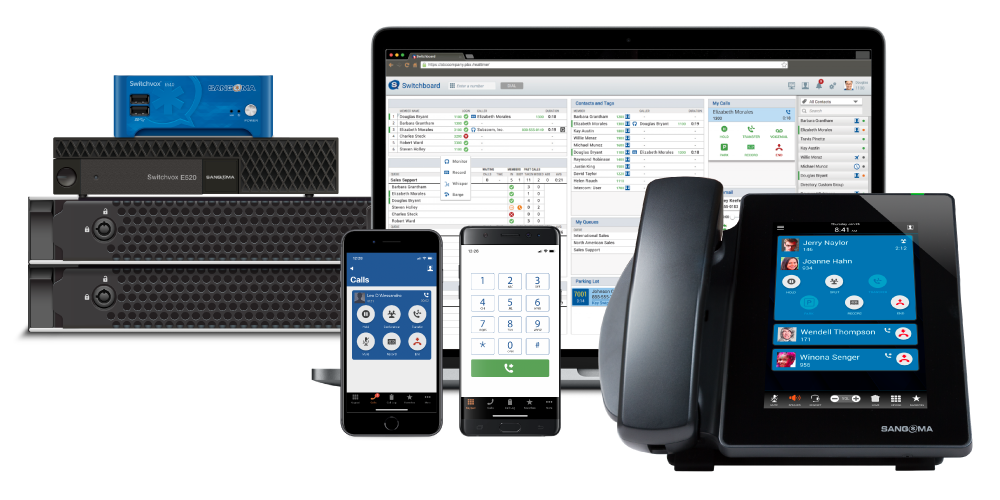The Development of Phone Systems: From Landlines to VoIP
The globe of phone systems has gone through an amazing makeover for many years. From the traditional landline systems that dominated households and services for decades, we have now transitioned to the age of Voice over Internet Protocol (VoIP) This evolution has revolutionized the means we connect, providing a more cost-effective and versatile remedy. In this short article, we will explore the trip of phone systems, starting from the very early telephone innovation to the introduction of digital phone systems, and lastly, the arrival of VoIP. We will additionally go over the benefits of using VoIP modern technology, such as boosted scalability and flexibility. As we dive into the future of phone systems, it comes to be obvious that VoIP is here to remain, shaping the way we connect and connect in the digital age.
Early Telephone Technology
Early telephone innovation's development played a crucial duty in transforming communication methods. At the forefront of this technological advancement was Alexander Graham Bell, who is credited with inventing the telephone in 1876. Bell's creation marked a considerable landmark in the history of communication, as it allowed for real-time, long-distance discussions to happen.
The very early telephone systems relied upon landlines, which were physical links in between two telephones through a network of wires. These landlines allowed voice signals to be sent over fars away, bringing individuals closer with each other and facilitating instantaneous communication. While the first telephone systems were limited in range and availability, they laid the foundation for the development of advanced communication technologies in the future.
One of the essential innovations in early telephone technology was the introduction of the switchboard system. The switchboard allowed several telephones to be connected to a main exchange, allowing users to make contact us to different areas. This advancement greatly broadened the reach and availability of telephone communication, as it got rid of the demand for a straight physical connection in between 2 telephones.
Shift to Digital Phone Equipments
The improvement of telephone innovation brought about the change from landlines to electronic phone systems, noting a significant shift in the method communication was carried out. Digital phone systems, also recognized as Voice over Internet Method (VoIP) systems, make use of web connections to send voice signals as opposed to standard copper cables. This transition to electronic phone systems has actually brought around countless benefits for people and companies alike.
Among the vital advantages of digital phone systems is expense financial savings. VoIP systems get rid of the demand for numerous phone lines, as all telephone calls are transferred over the internet. This leads to lowered infrastructure costs and reduced month-to-month expenses. Furthermore, international calls can be made at significantly lower prices compared to conventional phone systems.
One more benefit of digital phone systems is boosted functionality. Digital phone systems can quickly integrate with various other company communication devices such as email and immediate messaging, giving a combined and streamlined interaction experience.
Intro of Voip Innovation
With the intro of VoIP technology, the landscape of phone systems started to shift in the direction of an extra affordable and efficient interaction solution. VoIP, or Voice over Net Method, allows customers to make phone telephone calls online as opposed to traditional landlines. This modern technology converts voice signals right into electronic packages and sends them over information networks, getting rid of the demand for committed phone lines.

Another benefit of VoIP is its flexibility and scalability. With typical phone systems, removing or adding phone lines can be a cumbersome and pricey process. Nonetheless, with VoIP, users check it out can easily add or eliminate lines as needed, making it a more scalable remedy for organizations of all sizes.
Moreover, VoIP innovation gives a vast array of functions that boost interaction performance. These functions consist of voicemail to email transcription, call forwarding, conference calls, and auto-attendant systems. These attributes not only boost productivity yet additionally make interaction extra practical and easily accessible.
Advantages of Utilizing Voip
How does VoIP technology deal significant advantages over traditional phone systems? VoIP, or Voice over Net Procedure, has actually transformed the method we communicate by providing numerous advantages that traditional phone systems just can not match.
Unlike typical phone systems that rely on physical phone lines, VoIP makes use of an internet connection to send voice information. Additionally, VoIP systems frequently provide affordable rates strategies that include unrestricted residential calling, additional minimizing communication expenditures.
Secondly, VoIP innovation supplies boosted versatility and scalability. Typical phone systems are restricted by the variety of physical phone lines, making it hard and pricey to add or eliminate lines as needed. In contrast, VoIP permits for very easy scalability, enabling companies to add lines or extensions without the demand for added equipment.
VoIP systems usually come with a variety of innovative attributes such as voicemail, phone call forwarding, call recording, and automated assistants. VoIP can effortlessly integrate with other interaction tools like email, instant messaging, and video conferencing, supplying a linked communication experience.
Lastly, VoIP deals enhanced mobility and availability. With VoIP, individuals can make and get calls from anywhere with an internet link, enabling remote job and business connection. This degree of access is particularly beneficial for businesses with remote employees or several workplace areas.
Future of Phone Equipments
As innovation proceeds to development, the future of phone systems holds the pledge of also higher technology and smooth interaction. With the fast development of man-made intelligence (AI), virtual reality (VR), and the Internet of Things (IoT), the possibilities for phone systems are expanding past standard voice telephone calls.
One secret facet of the future of phone systems is the integration of AI. In the future, these aides will likely play a larger function in handling our phone telephone calls, scheduling meetings, and also performing discussions on our behalf.
Another area of development is the assimilation of phone systems with other interaction channels. With the surge of messaging apps and social media sites systems, individuals are progressively shifting towards text-based communication. In the future, phone systems will effortlessly integrate voice, video, and text-based interaction networks, enabling users to switch between them effortlessly.

Verdict
To conclude, the evolution of phone systems from landlines to VoIP modern technology has actually reinvented interaction. Early telephone technology laid the structure for digital phone systems, which paved the means for the intro of VoIP. The benefits of utilizing VoIP, such as cost-effectiveness and versatility, make it a preferred choice for lots of people and services. As technology remains to advancement, pop over to this web-site the future of phone systems holds the capacity for further improvements and enhancements in interaction efficiency.
In this write-up, we will certainly discover the journey of phone systems, starting from the very early telephone innovation to the introduction of digital phone systems, and finally, the introduction of VoIP. Digital phone systems, also known as Voice over Internet Procedure (VoIP) systems, utilize net connections to send voice signals rather of traditional copper cables. With standard phone systems, adding or removing phone lines can be a expensive and difficult procedure. Unlike standard phone systems that depend on physical phone lines, VoIP utilizes a web connection to transfer voice data. Typical phone systems are limited by the number of physical phone lines, making it tough and expensive to add or get rid of lines as needed.